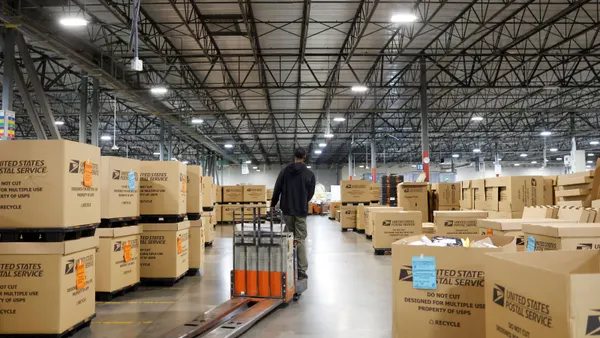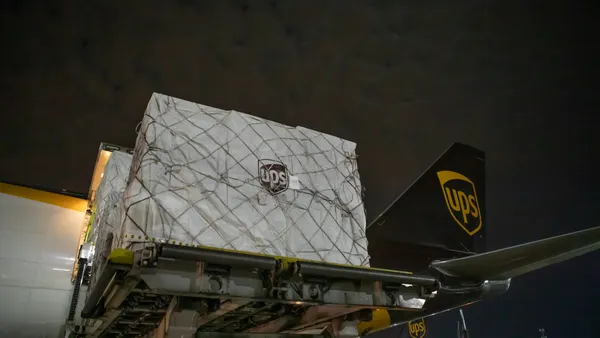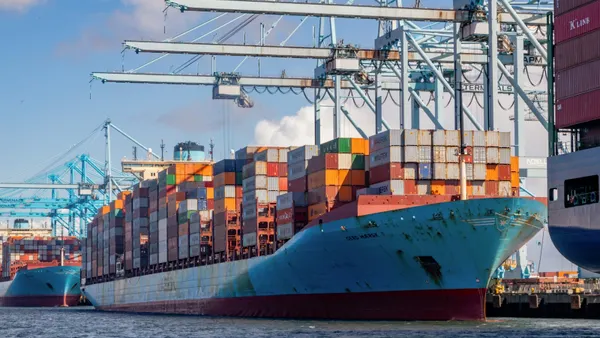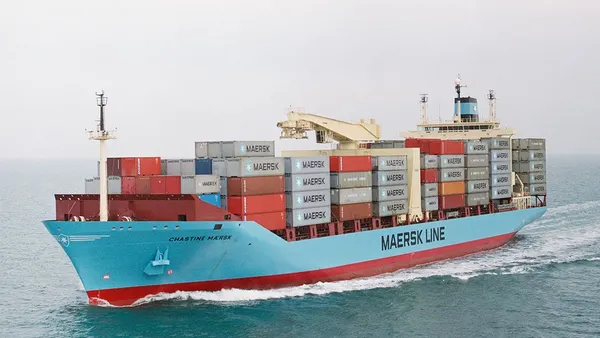Dive Brief:
- Airfreight volume fell nearly 14% year over year (YoY) in July, according to the latest numbers from the International Air Transport Association. Freight capacity fell 31% YoY in July.
- Belly capacity for international cargo was down 70% in July compared to the same month last year while freighter capacity was up nearly 29%, according to IATA.
- As global economies begin to show improvement, "one of our biggest challenges remains accommodating demand with severely reduced capacity," IATA Director General and CEO Alexandre de Juniac said in a statement. "If borders remain closed, travel curtailed and passenger fleets grounded, the ability of air cargo to keep the global economy moving will be challenged."
Dive Insight:
The pandemic worsened through July in many parts of the world, with the United States seeing case counts crest around the middle of the month.
But consumer spending is improving — rising 1.9% in July compared to June, according to the Bureau of Economic Analysis. The increased demand for goods, coupled with capacity pulled from the market, has kept airfreight rates at elevated levels.
Airfreight rates from China and Hong Kong to the U.S. are currently around $5.33 per kilogram, according to the TAC Index. This places rates above their level before the pandemic — they are about in line with the 2019 peak season — but well below the rate peak in May resulting from the rush to import personal protective equipment from Asia.
The peak rate in May was about 75% higher than the 5-year average, according to Drewry.
"Traffic continued to recover in June and July, fueled by the restart of economic activity and easing of lockdown measures in several key economies," Drewry wrote in a note Wednesday. "Nevertheless, pricing continued its retreat from the peak levels in April and early May, as demand for PPE declined and shippers diverted cargo to less expensive modes of transport."
Drewry expects the rates to remain at their elevated level due to the loss of belly capacity and said "product launches like PS4 could even produce spikes."
The environment led to an "exceptional quarter" for Atlas Air, a cargo airline, the company's CEO John Dietrich said on an earnings call last month.
"We expanded our long-term charter business to include new agreements with manufacturers such as HP, Inc. and large freight forwarders like DHL Global Forwarding, Apex Logistics, DB Schenker, Flexport and Geodis, all that wanted to secure committed capacity from us," Dietrich said on the call.
The persistence and, in some cases, the resurgence, of COVID-19 means belly capacity is not returning "as quickly as I think many hoped," he said.
"That plays well for our business, frankly," he said.
The daily utilization of widebody freighters hit 11 hours per day in June, its highest level since 2012, according to IATA. But this hasn't been enough to offset the loss of belly capacity and means shippers will likely deal with tight capacity and elevated rates through peak season.













